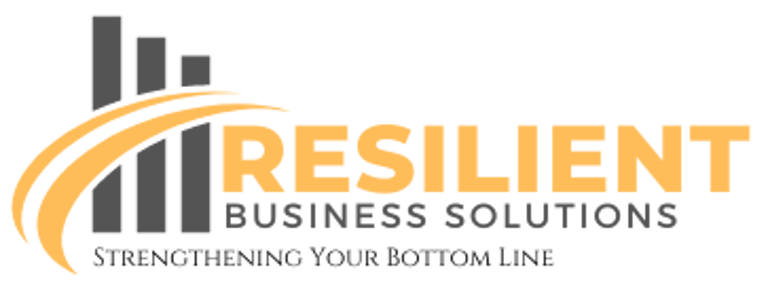Proven Business Optimization Strategies to Scale Your Small Business
Business optimization focuses on refining processes, managing resources effectively, and improving overall performance to achieve greater efficiency and productivity. This blog post explores the importance of streamlining operations, leveraging technology, and fostering innovation to help small businesses enhance service delivery, reduce costs, and maximize returns. Learn practical strategies for optimizing workflows and adapting to market changes to ensure sustainable growth and success.
5 min read


Business optimization refers to the systematic approach of improving a company's operational processes, resource management, and overall performance to achieve greater efficiency and productivity. The fundamental goal of optimizing a business lies in enhancing its ability to deliver products or services in the most effective manner while maximizing the return on investment. By concentrating on specific areas of the organization, businesses can identify inefficiencies and develop strategies to mitigate them, ultimately paving the way for growth and success.
One of the primary reasons for engaging in business optimization is to increase operational efficiency. Efficient operations not only reduce costs but also improve service delivery, enhance customer satisfaction, and boost employee morale. Streamlined processes ensure that resources—whether human, technological, or financial—are utilized to their fullest potential, effectively contributing to the bottom line. Furthermore, taking the time to refine operations keeps companies competitive in an ever-evolving marketplace.
Resource management plays a critical role in business optimization. Allocating resources wisely ensures that every aspect of the business is receiving the necessary support, whether that be through investments in advanced technology or training programs for staff. In turn, this strategic approach enables companies to adapt and respond promptly to market changes, thus gaining a competitive edge. Key areas to focus on may include supply chain management, customer relationship management, and employee efficiency.
By understanding and implementing business optimization techniques, organizations set the stage for long-term success. Optimization efforts lead to sustainable growth, making it essential for small businesses to recognize their potential. In summary, optimizing business processes is the cornerstone of navigating the complexities of modern economies and achieving enduring prosperity.
Leveraging Technology to Enhance Efficiency
In today’s fast-paced business environment, leveraging technology is essential for small businesses aiming to enhance operational efficiency. By adopting various digital tools and software, organizations can streamline operations, reduce manual work, and ultimately foster growth. One of the most effective approaches is the implementation of project management systems, which enable teams to collaborate effectively. Tools like Trello, Asana, and Monday.com allow businesses to assign tasks, set deadlines, and monitor progress, ensuring that projects are completed on time and within budget.
Moreover, customer relationship management (CRM) platforms such as Salesforce and HubSpot can significantly optimize customer interactions. These systems facilitate the management of customer data, sales leads, and marketing campaigns, thereby enhancing customer satisfaction and retention rates. By automating routine tasks, CRMs minimize the risk of human error and free up valuable time for your team, allowing them to focus on strategic initiatives.
Another area where technology can play a crucial role is through the use of automation tools. Software like Zapier and IFTTT can connect different applications and automate workflows, eliminating unnecessary manual efforts. For instance, these tools can automatically transfer leads from a web form into a CRM system, thereby reducing the time spent on data entry and minimizing discrepancies. A small retail business that adopted an e-commerce platform integrated with an automated inventory management system not only saved hours of manual tracking but also improved order accuracy and customer satisfaction.
In conclusion, the strategic use of technology provides small businesses with the opportunity to streamline processes and improve overall productivity. From project management to CRM and automation tools, incorporating these technologies effectively can lead to significant operational improvements, minimizing errors, and ultimately saving time. By doing so, small businesses can position themselves for sustainable growth in a competitive landscape.
Streamlining Processes for Better Workflow
Optimizing business efficiency is pivotal for small enterprises aiming to scale successfully. One of the core strategies in this regard involves streamlining processes to create a more productive workflow. The initial step is to systematically map out existing operational procedures. This mapping can provide a clear visual representation of each step, making it easier to pinpoint potential bottlenecks that impede productivity.
Once the processes are documented, the next step is to scrutinize them for areas of waste. Waste can manifest in various forms, such as redundant tasks, prolonged transition times, or excessive resource usage. Identifying these inefficiencies is crucial for enhancement, as it allows businesses to focus on modifying or eliminating these wasteful elements. For instance, adopting lean methodologies can facilitate a culture of continuous improvement, where every team member is encouraged to engage in optimizing their daily operations.
Moreover, small adjustments in procedures can yield considerable improvements in overall workflow efficiency. Implementing process automation tools can significantly reduce manual tasks, freeing up employees to focus on high-value activities. Periodic assessments should also be conducted to reassess workflows and ensure that any changes continue to promote productivity. This iterative approach to process improvement cultivates an environment where businesses can adapt to new challenges and opportunities effectively.
In essence, by prioritizing the elimination of bottlenecks and waste, small businesses can enhance their operational workflows. A commitment to continuous assessment and refinement of processes promotes a more scalable and resilient business model, ultimately leading to increased productivity and long-term success.
Fostering a Culture of Innovation and Adaptability
In today's rapidly evolving market landscape, fostering a culture of innovation and adaptability within a small business is essential for effective business optimization. A robust company culture that encourages creative thinking, collaboration, and agile responses to change positions an organization to thrive amidst competition. Establishing an environment where employees feel empowered to share ideas and propose new solutions can significantly enhance productivity and employee engagement.
To nurture a culture of innovation, small businesses can implement various training programs designed to stimulate creative problem-solving skills among staff. Regular workshops and brainstorming sessions not only encourage teamwork but also allow employees to experiment with new concepts and approaches. By providing resources and opportunities for continuous learning, organizations signal their commitment to development and innovation, motivating employees to contribute actively to these goals.
Moreover, open communication channels are vital to fostering an adaptive business culture. Facilitating transparent dialogue between management and employees helps cultivate trust and encourages workers to voice their insights or concerns. Channels such as suggestion boxes, town hall meetings, or feedback surveys can be instrumental in ensuring that employees feel heard and valued. Recognizing and acting on employee feedback also enables organizations to pivot and make improvements in alignment with both internal priorities and market demands.
Additionally, adopting a proactive approach to change can significantly enhance a small business's ability to thrive. Rather than merely reacting to industry trends or disruptions, organizations should actively seek to anticipate changes and innovate ahead of time. This foresight often involves analyzing consumer feedback, monitoring competitor activities, and staying informed about emerging technologies and market trends. By embedding adaptability into the core values of the company, businesses can position themselves favorably to navigate challenges and seize opportunities for growth.
Ass You Can See
Business optimization is not just a one-time initiative but a continuous journey toward efficiency, innovation, and growth. By streamlining processes, leveraging technology, and fostering a culture of adaptability, small businesses can position themselves to thrive in an ever-changing marketplace. Optimization efforts not only improve operational performance but also enhance customer satisfaction and employee engagement, creating a strong foundation for long-term success. Embracing these strategies empowers small businesses to stay competitive and achieve their goals in today's dynamic business environment.
When You Are Ready
Ready to simplify your business operations? At Resilient Business Solutions, we’re here to take the stress out of so many of your business tasks, so you can focus on what you do best — growing your business. Whether you need help with bookkeeping, invoicing, managing payables and receivables, content creation, or a new website design, we’ve got you covered. Contact us today to learn how we can support your business with reliable, expert services. Let’s build a resilient future together!
Strengthening Your Bottom Line
Customized financial support to empower your business success.
Get Our Free 50+ Page Small Business Success Guide Now
© 2024. All rights reserved.
